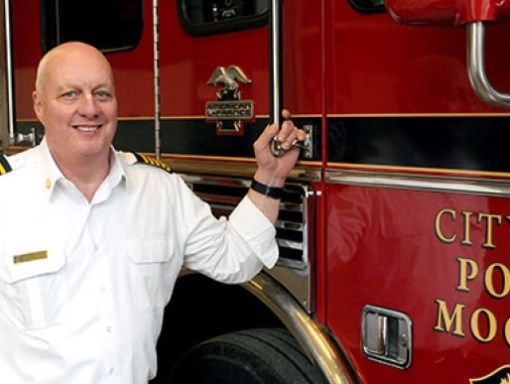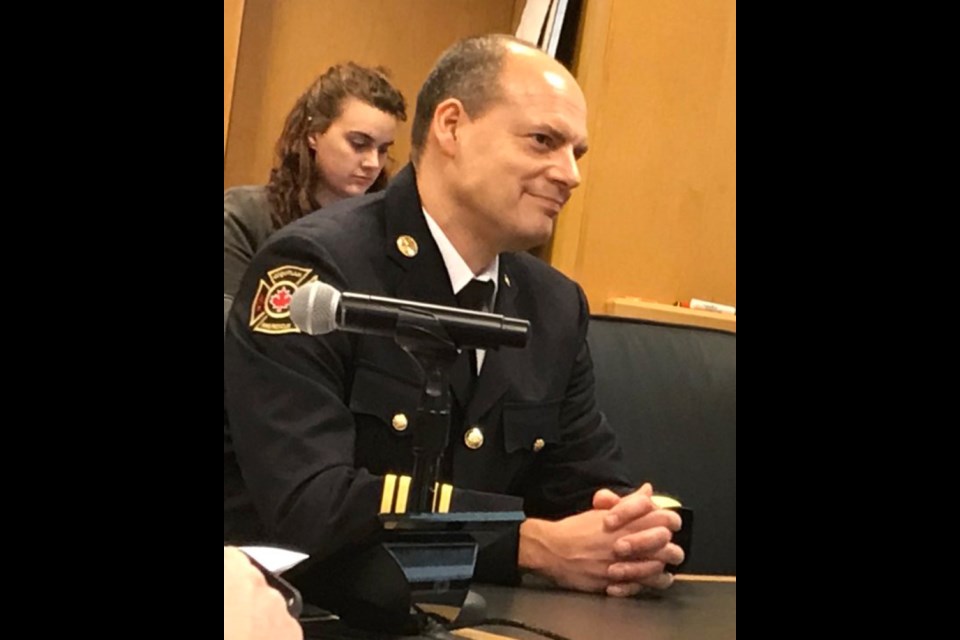It's hot out there — and Tri-Cities officials want to make sure it doesn't get hotter.
All three cities have issued notices advising residents to take precautions as the fire risk rises due to dry conditions.
With recent heat and the lack of moisture, Coquitlam is calling on its residents to stick to the city’s bylaws that ban outdoor burning, smoking in parks and throwing away cigarette butts.
Port Coquitlam has banned smoking and open-air burning from all of its parks, trails and natural areas effective immediately.
Fire chiefs Jim Ogloff of Coquitlam and Ron Coulson of Port Moody said their departments get their hazard indications from Metro Vancouver’s weather stations. Ogloff said the Coquitlam watershed’s metrics show the risk has been moderate to high the last couple of weeks.
“Now we’re in high [rating] and I think we’ll remain in that for the rest of the week, next week and beyond,” said Ogloff. “As temperatures rise we do get more of the cedar shrub type of fires and dry grass on boulevard fires.”
In 2005, Coquitlam banned outdoor burning year round. Barbecuing is allowed but basically any other kind of fire isn’t.
With Coquitlam being bordered by Crown land to the north that's untouched or undeveloped forest, there’s always a potential for a wildfire, particularly with high temperatures and low humidity, said Ogloff.

PoMo's Coulson said there’s particular concern when the humidity percentage is less than the temperature because of the dry conditions that combination creates.
“That can really exacerbate the fire risks,” said Coulson.
He noted Port Moody, like Coquitlam, has a lot of wooded area that creates concern, particularly Bert Flinn Park, the land to the north and Burnaby Mountain to the west. All are well used by community members, he said, and all it takes is one negligent smoker or a group of youngsters having a party in the woods to wreak havoc.
PoCo said in a news release it will be stepping up enforcement patrols in areas susceptible to brush fires.
When the fire risk is high, that usually means the water levels are low. So far this year, however, Metro Vancouver hasn’t needed to elevate its summer restrictions from Stage 1, which permits watering of lawns and gardens twice a week at certain times.
Metro Vancouver spokesperson Sarah Lusk said water levels at the Coquitlam reservoir are currently within the normal range at 83% of maximum. She said there are no plans to move beyond the restrictions already in place.
City of North Vancouver Mayor Darrell Mussatto, chair of Metro Vancouver’s utilities committee, said the regional district’s three reservoirs are at 80% overall. He said if they were at that level in May or June, it would be more of a challenge but the current level means the district should have lots left over for September and October.
“For this time of year, it is good," he said. "We’re right in the middle of where we should be. We’re significantly better than 2015 when we had that big drought.”
Being in good shape, however, doesn’t mean the district won’t be vigilant with water use.
“We want good weather, we don’t want to scare the sun away, but at the same time we don’t want to stop saving water,” Mussatto said. “We find the watering of lawns is the biggest increase of using water in the summertime.”
He’d prefer residents follow his example and not water their lawns at all.
“Grass doesn’t die, it just goes dormant. It’s fine with being golden brown,” said Mussatto.
He added many residents are following the advice and water use habits are getting better.
“The good news is we are consuming less per capita than we have in the past but the bad news is we’re still using more than the average in Canada,” said Mussatto, who noted Metro Vancouver uses 1.4 billion kites of water a day and with the region’s increasing population that’s only going to go up.
[email protected]
REDUCING RISK
City of Coquitlam’s advice during the high fire risk:
• Do not have any open fires or conduct outdoor burning.
• Relocate flammable debris or firewood at least 10 metres away from your home.
• Be aware when mowing your lawn that if the blade comes into contact with a rock, it can cause a spark that may ignite a fire.
• Ensure vehicle exhausts do not emit on to a dry lawn.
• Reduce the amount of fuel present around homes; prune shrubs, remove dead and dry vegetation and tree limbs two to three metres from the ground.
• Break up continuous vegetation and space so there is no continuous canopy or line of vegetation leading to the home.
• Keep the roof and gutters clear of dead needles; prune branches that hang over the roof.
• For grilling safety tips and more details on all seasonal fire safety, visit www.coquitlam.ca/seasonalsafety.
• Report any signs of smoke or fire by calling 911 immediately.
City of Port Coquitlam’s reminders to residents:
• No open air burning allowed in PoCo parks, natural areas and backyards, including campfires, open fires, charcoal or wood-burning barbecues and propane fire pits.
• Propane barbecues are allowed to be used in most city parks, except all-weather turf fields.
• Never leave a barbecue unattended while it is on or hot.
• Smoking is prohibited in all city parks and trails.
• Don’t park vehicles, motorcycles or gas-powered bicycles on or next to dry grass.
• Burning on agricultural properties in only allowed with a permit at specific times in the spring and fall.



